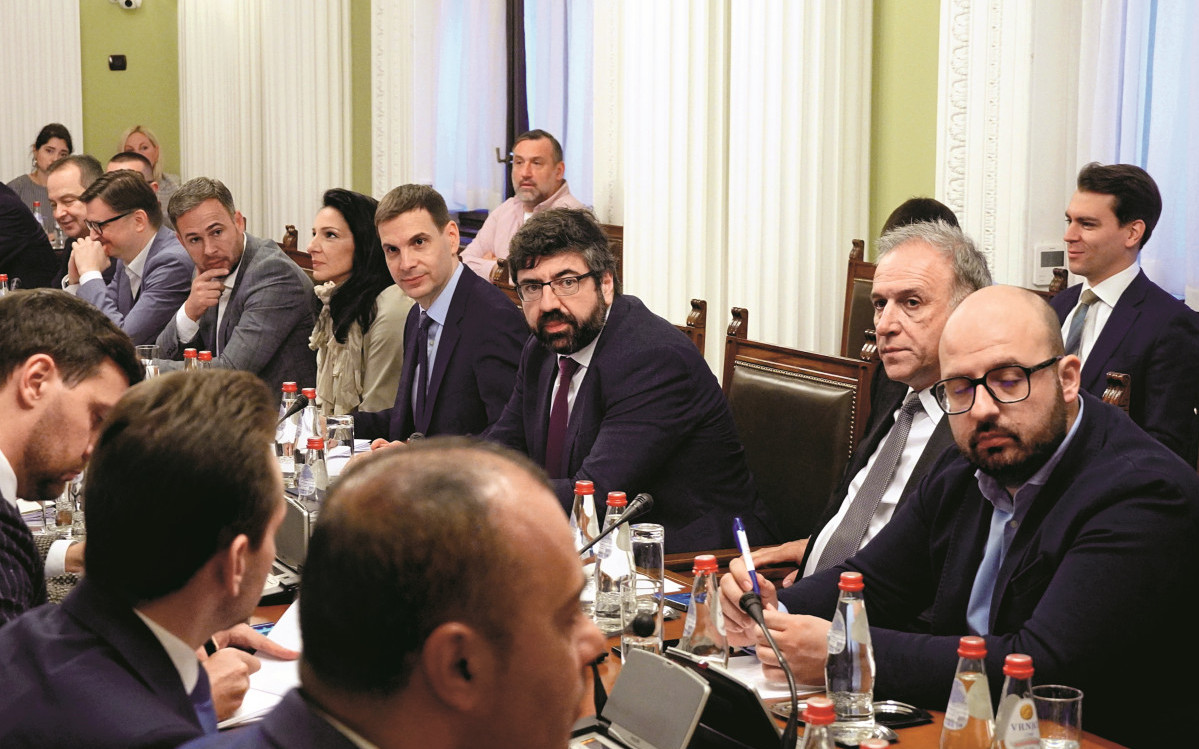
11.04.
2024.
Plan without a boycott or a boycott without a plan: What are the opposition's plans for the city elections
The ruling Serbian Progressive Party has dug in and declared - there’s no turning back.
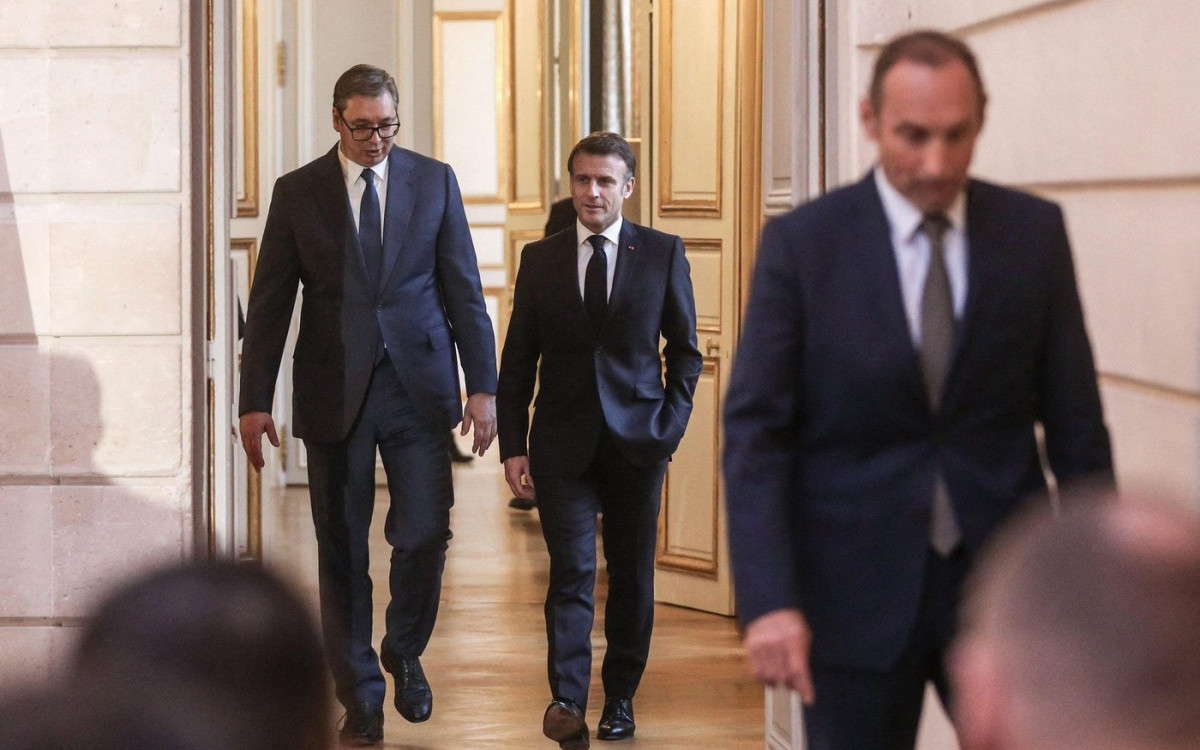
When Serbian President Aleksandar Vučić took off from Belgrade Airport to Paris, it wasn’t just air traffic control that set the flight course “west”, but it was evident that Vučić also turned Serbia’s controls in that geopolitical direction. During a series of protocols at the Élysée Palace, Vučić held discussions with Emmanuel Macron that could significantly alter Serbia’s course.

11.04.
2024.
The ruling Serbian Progressive Party has dug in and declared - there’s no turning back.
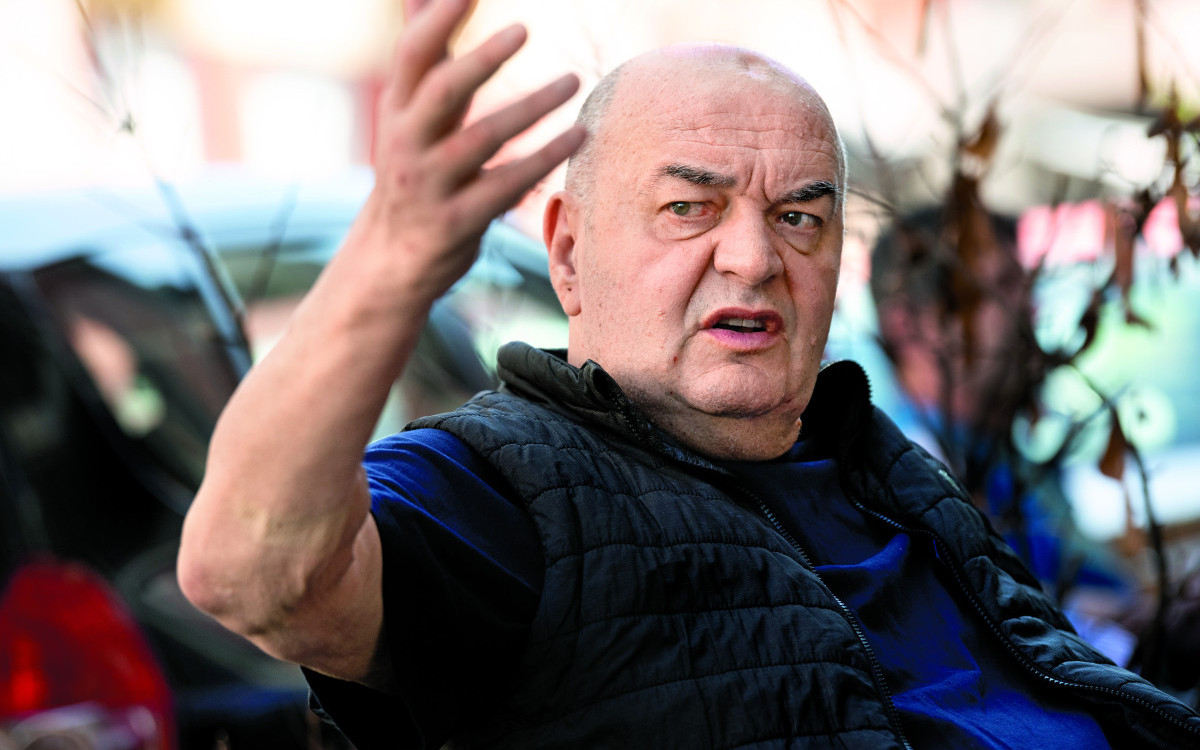
4.04.
2024.
"The opposition must lead the citizens, and the citizens must fight for their dignity and the dignity of the country they live in."
What Vučić and Macron discussed in private, perhaps over a glass of “Château Béchevelle,” remains unknown. Officially, the Élysée Palace announced that their discussions focused on European integration, normalization of relations with Kosovo, with an emphasis on the Brussels-Ohrid Agreement, as well as defense, energy, innovation, and artificial intelligence. In a joint declaration, which Macron begins with “Mr. President, mon cher Aleksandar,” it is stated that “Serbia plays an important role in strengthening the EU’s strategic autonomy” and will continue to do so in the future.
“Therefore I want to welcome the clear choice you have made in recent months and again in recent days in a geopolitical framework that is ours and that supports our European agenda,” the statement said.
Macron unequivocally indicated to Vučić that those responsible for the attack in Banjska must be held accountable, that normalization with Kosovo is a “guarantee of stability in the region and the continent,” which lies at the core of the Brussels-Ohrid Agreement (based on the Franco-German plan) as well as that it is crucial for Serbia to align more closely with the EU’s foreign policy
“Serbia should have no doubt that its future lies within the EU and nowhere else,” Macron asserted, underscoring his commitment to this “strategic choice” and goal, reminiscent of historical alliances. He also stressed that “progress is possible, especially in areas such as environmental protection, transportation, defense, artificial intelligence, and civilian applications of nuclear energy”, especially emphasizing that he is “delighted at the fruitful dialogue” between the Serbian side and the French company EDF, along with several players from the defense industry.
When Vučić was excluded from the group of major European leaders at the commemoration of the centenary of the end of the First World War in Paris and sat far away from them, despite being the president of a country that suffered the greatest losses in that war, nothing suggested that he could now take on a completely different role.
Whether Vučić and Macron tasted the finest French cheeses during their one-on-one conversation remains unknown and, although the discussion between the two presidents was wrapped in the cellophane of historical friendship, embodied in the inscription “We love France as it loved us in 1914-1918” on the Monument of Gratitude in Kalemegdan, there is undoubtedly love and cheese here, akin to the Serbian proverb “love for love, and cheese for money.” And we’re talking about substantial sums, not only by Serbian standards.
These substantial sums include three billion euros that Vučić previously estimated the acquisition of “Rafale” fighter jets from the French company “Dassault” would cost Serbia and the exact price will be known once contracts are signed, which, according to the president’s announcements, will happen within two months. France ordered these fighters for 119 million euros each, while India paid nearly 240 million, as the price depends on the package of accessories.
Vučić heralded the acquisition of the “Rafale” with the words that it represents something “extremely significant for Serbia on many levels. ”
“For us, obtaining such sophisticated fighters and machines is impossible, it is terribly important for us, but it also opens up other chapters, other opportunities for Serbia,” Vučić stated.
These other opportunities could be geostrategic, and the “Rafale” flyover in the Serbian Air Force could strengthen foreign policy ties with the West. While authorities often use arms procurement to gain political points, purchasing fighter jets is different—it’s a strategic decision that determines a country’s long-term military orientation. And it also implies geopolitical alignment. This can be seen on the example of the SFRY, which, after Tito’s “no” to Stalin, began acquiring Western aircraft and de facto became an associate member of NATO, only to later return to the Soviet after reconciliation. The last Western fighter jet to fly under our flag was the F-86 Sabre, acquired nearly seven decades before the “Rafale.”
The acquisition of fighter jets involves not only purchasing the aircraft, but also procuring equipment, maintenance, armament, spare parts, pilot training, and more. The lifespan of a fighter jet is approximately 40 years, so during this period, the Serbian Air Force will rely on the French manufacturer and spend a significant amount of money on their maintenance, servicing, and repairs. With the announced purchase of 12 “Rafale” jets, the most advanced F4 variant, they are expected to fully replace the aging “MiG-29s.”
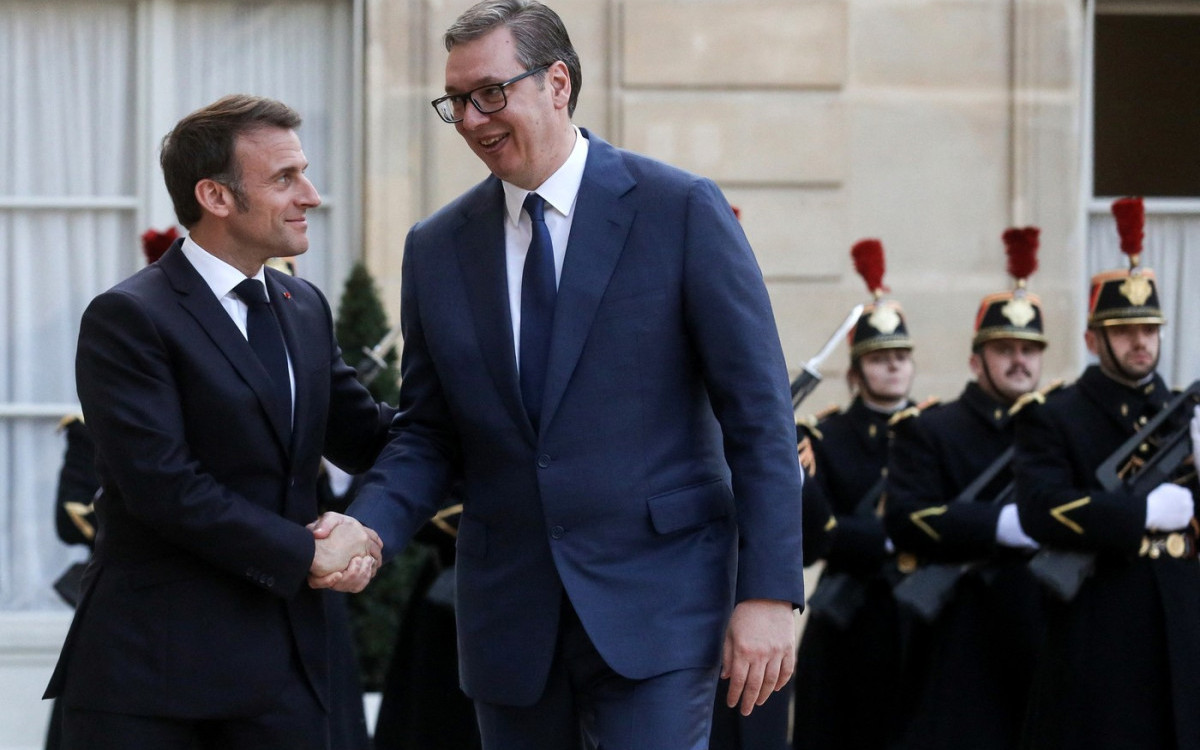
However, French television channel BFM TV claims that the company “Dassault” will consider Serbia’s political situation before deciding on the sale of the “Rafale”, primarily due to Belgrade’s close ties to Moscow and Beijing, but also to avoid the potential use of the jets for “intimidating Kosovo”, therefore, a significant improvement in relations with Priština is expected. But this won’t be the only challenge from the French side that Vučić will have to take on if he desires close ties with Macron, since France is a co-sponsor of the resolution on the Srebrenica genocide, which has elicited strong reactions from Vučić on a national level.
The “Rafale” jets are not the only significant weaponry purchased by Serbia from France. Helicopters H-145M, produced by French company “Airbus” in cooperation with German manufacturers, have already arrived, as well as “Mistral” anti-aircraft missiles and “Tales” radars. Serbia ordered 22 “Thales” radars for its military, whose delivery began after almost four years of waiting.
Vuk Vukanović, a senior researcher at the Belgrade Center for Security Policy, told NIN that the France’s status as Serbia’s dominant partner in Western Europe is set in cement through the purchase of “Rafale”.
“But also the fact that in its defense policy, Belgrade is approaching the West (military exercises with the United States, participation in the Sinai mission with the United States, and delivery of ammunition to Ukraine),” says Vuksanović.
Besides the military, strategic economic connections are also in play. The possibility of France building nuclear power plants in Serbia has been announced, and even before that, domestic media launched an offensive, emphasizing that these plants are necessary and that the moratorium from the time of the SFRY and the Chernobyl disaster should be lifted.
France is one of the strongest players globally when it comes to nuclear energy, alongside the United States and Russia, while their company, EDF, with which a memorandum has been signed for the development of a civilian nuclear program and cooperation on hydroelectric power plants, is one of the largest players in the field of nuclear energy.
Regarding nuclear power plants, the cost is significantly higher than that of “Rafale” jets, making it enormous for Serbia. A single nuclear plant with a capacity of 1,500 megawatts costs between 10 and 15 billion euros. It also involves long-term commitment to the technology and knowledge of the country of origin.
By constructing such a power plant, France could increase its investment presence in Serbia. Already, numerous French companies operate here, totaling around 130, including several major players on a global scale. “Vinci” has been granted a concession for Belgrade airport, French companies play a crucial role in the construction of Belgrade metro, “Michelin” has long been the owner of “Tigar,” and the company “Veolia,” a global leader in water industry, is involved in waste treatment and energy production. The French companies such as “Schneider Electric,” “Tarkett,” “Lactalis,” also operate in Serbia, and there is also “Stellantis” (through the Peugeot-Citroën share), which is expected to start production of a new car model and return to the top exporters in Serbia.
France could emerge as a leader among foreign investors through new ventures, such as nuclear power plants, as well as other areas in which their companies could participate (hydroelectric plants, management of water supply and water treatment facilities, and green energy).
Aleksandra Kolaković, a senior scientific advisor at the Institute for Political Studies, tells NIN that, if the acquisition of “Rafale” jets and cooperation in investment and energy sectors occur, “Serbia and France would enter a phase of relations unlike any we’ve had in the last hundred years.”
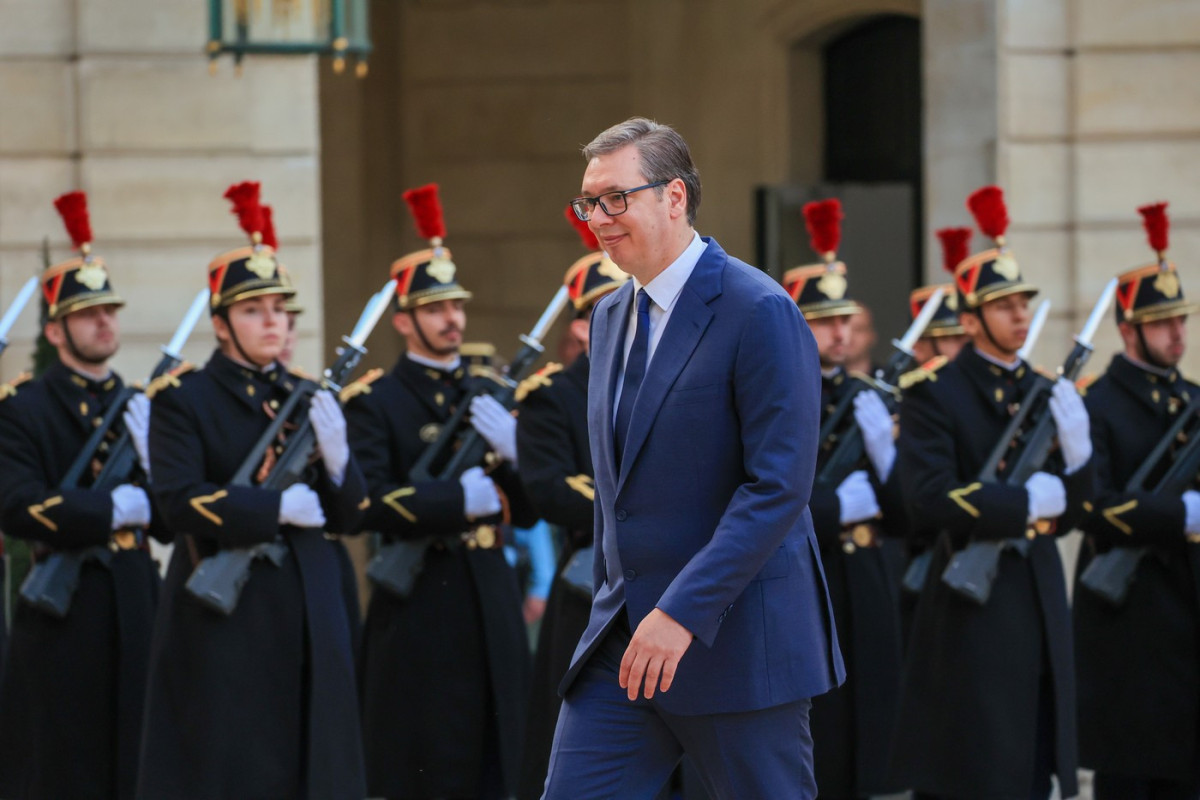
“Good political relations, coupled with economic ties, are prerequisites for relationship development, with the strategic framework being clearly dominant in the case of “Rafale.” National interests and international relations determine strategic direction, especially when it comes to small countries like Serbia,” she says.
What would this strategic military and economic partnership bring to Serbia? In this way, we would come into the sphere of influence of France, which aims to be the European leader and is currently perhaps the most powerful European country and the only nuclear power in the EU, with a strong military, industry, economic and political influence not only within Europe.
At a time when Serbia is surrounded by NATO countries and faces complex international situations due to the war in Ukraine and conflicts in the Middle East, such a partnership could alleviate the pressure of being labeled “Putin’s exponent” and a “disruptive factor” in Europe. Consequently, intermittent threats related to visa restrictions, EU fund withholding, investor withdrawal—previously mentioned as possible consequences of “non-alignment with EU foreign policy”—and other contentious issues could be mitigated if Belgrade were firmly embraced by Paris.
“Currently, the most contentious issues are the state of democracy in Serbia, Kosovo, and the relationship with Russia. The strongest criticism regarding the state of democracy comes primarily from the EU, but in this context, Macron can serve more as a politician to Vučić than to Serbia itself, which will be discussed a little later.
The Kosovo issue seems to have been resolved through the Brussels-Ohrid Agreement, which was cooked up by Macron, with German assistance. Although both Belgrade and Priština verbally and demonstratively resist it, the agreement is mostly being implemented according to plan. In line with this, the government in Belgrade is more relaxed about the need for Russia and China to veto Kosovo at the UN, as that won’t happen in the next five years according to the Ohrid Agreement, so it is easier to get closer to the West. On the other hand, the issue of sanctions against Russia could be left aside at the declarative-political level. Despite the narrative of “fraternal relations” between Serbia and Russia propagated by the authorities nationwide, they have cooled due to the war in Ukraine. Serbia not only voted for the UN resolutions condemning the Russian invasion, but also took many steps in that direction.
By losing geopolitical pressure, Serbia would achieve a more stable situation, which could significantly advance it economically in various ways and it would also facilitate access to the EU’s plan for the Western Balkans, which amounts to a hefty seven billion euros and is contingent on addressing some of these geopolitical issues.
Where does Macron’s offer for a geostrategic alliance come from? He was long considered an opponent of EU enlargement to the Balkans, advocating for a “European political community” that would connect non-EU states, which would effectively block their entry, and now he has become an ardent advocate for Serbia’s EU membership. This wouldn’t be the first 180-degree turn for Macron, nor would it be for Vučić, and now both seem ready for it. Let’s recall Macron’s statements about the “brain death of NATO” or the onset of war in Ukraine, when he was pointed at as “lukewarm” supporter of Ukraine. And now he is considering sending troops to war with Russia.
The French president remains the sole leader of a powerful European country with clear support. The German government is wavering due to economic problems, while the conservative British government faces a likely electoral defeat by the Labour Party. In this situation, but not only because of it, Macron aims to assert himself as a strong European leader—one who shapes its policies and wields the greatest influence. He demonstrated this by standing up to Putin and expressing readiness to confront both the USA and China.
“Since the beginning of his presidential term, Macron has focused on major EU reforms and a strong presence in foreign policy,” says Aleksandra Kolaković.
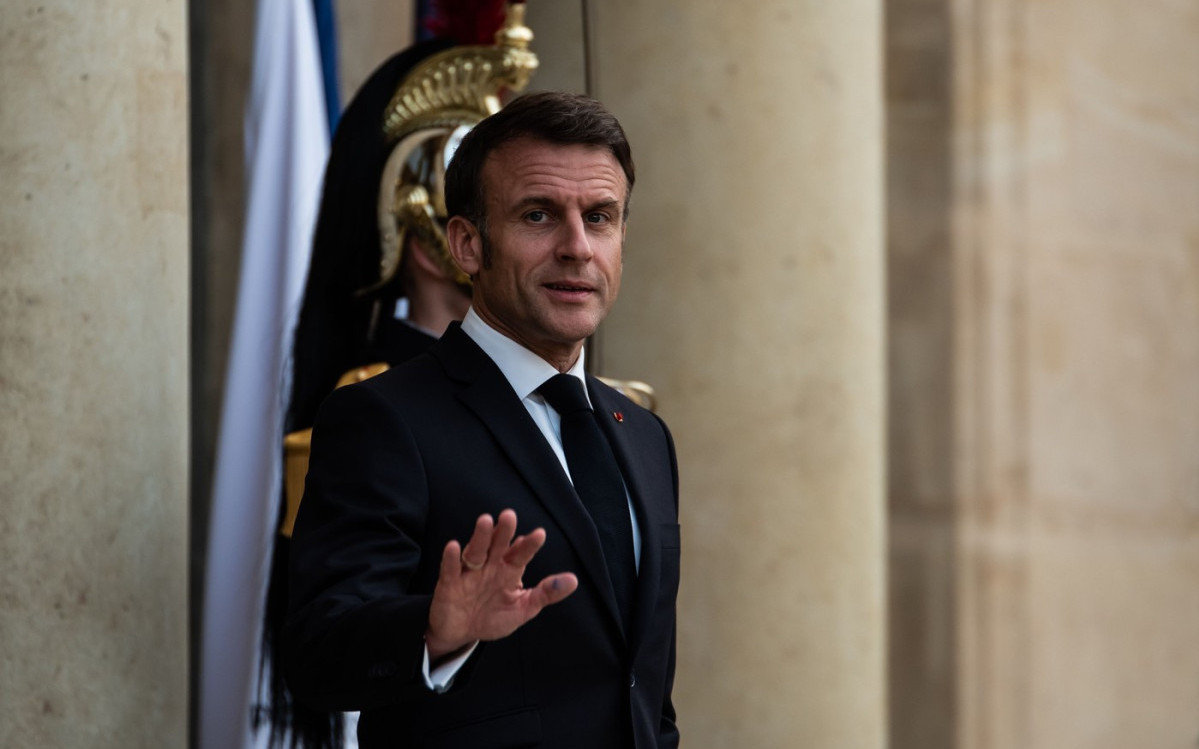
“Angela Merkel’s departure and his second term victory, along with the ongoing war circumstances, have provided him with the opportunity to emerge as Europe’s leader. His ambitions are even greater,” she says.
“On the other hand, although the France-Germany axis is currently a major duo within the EU, characterized by close cooperation, the longstanding rivalry between the two states persists. Germany’s influence in the Balkans is significant, but France, eager to position itself as the EU’s strongest leader, seeks to somehow outshine Berlin. This is evident in Paris’s excellent relations with Zagreb, which has also ordered ‘Rafale’ jets (albeit used and of the previous generation compared to those ordered by Serbia). Macron demonstrated this by inviting Albanian Prime Minister Edi Rama to be his guest immediately after Vučić, along with a very active approach to the Western Balkans (the Franco-German plan for Kosovo).”
“France and Macron are trying to promote themselves as leaders in Europe, and therefore, engagement with the Balkans—one of the problematic European regions—is part of that effort,” says Vuk Vuksanović
The French president in the Balkans, supported by the plausible argument of good historical relations, could also seek compensation for the loss of influence in African countries. By bringing Serbia into his camp, he would, in a way, reciprocate Putin’s influence in Africa, as many in Europe view Serbia as a “little Russia. ”
What does Vučić gain politically by getting closer to Macron? Once considered Angela Merkel’s “protégé”, Vučić was accused of being brought to power by Berlin to “finish the Kosovo Project.” He lost his main patron not only due to Merkel’s political retirement, but even while her mandate was still ongoing, when Vučić, with the help of the US and Donald Trump’s administration, attempted to resolve the Kosovo issue through partition.
Vučić’s relationship with Germany has been far from good lately. Not only does he lack support, but Berlin has also been the most vocal in criticizing electoral irregularities, while Vučić, even before that, hinted that Germany was “working against Serbia.” In this situation, Vučić needs an umbrella to shield his power from EU pressures, which are currently the strongest and focus heavily on the state of democracy in Serbia. Accusations of electoral fraud, usurpation of state and public resources in favor of the ruling party, undermining the parliament, stifling freedom of speech, eroding the independent judiciary, pressuring regime critics, and suppressing free media, corruption (the list is almost endless), these issues have not gone unnoticed. It was evident in the European Parliament’s resolution on elections in Serbia, as well as in the report by the American Freedom House, which stated that Serbia experienced the largest decline in democracy among transition countries.
Vuksanović believes that strategic agreements between Vučić and Macron “absolutely help the Serbian leadership buy a considerable amount of credit in Paris, which almost certainly means that Paris will be less inclined to criticize the government in Belgrade due to national political trends in Serbia.”
This could give Vučić a free hand to handle the political situation in Serbia according to his own preferences—further “manipulations” of the institutions, rigging the elections, and shaping the political system to his advantage, and abusing the state, all while remaining an important strategic partner. As a result, allies might turn a blind eye to these actions.